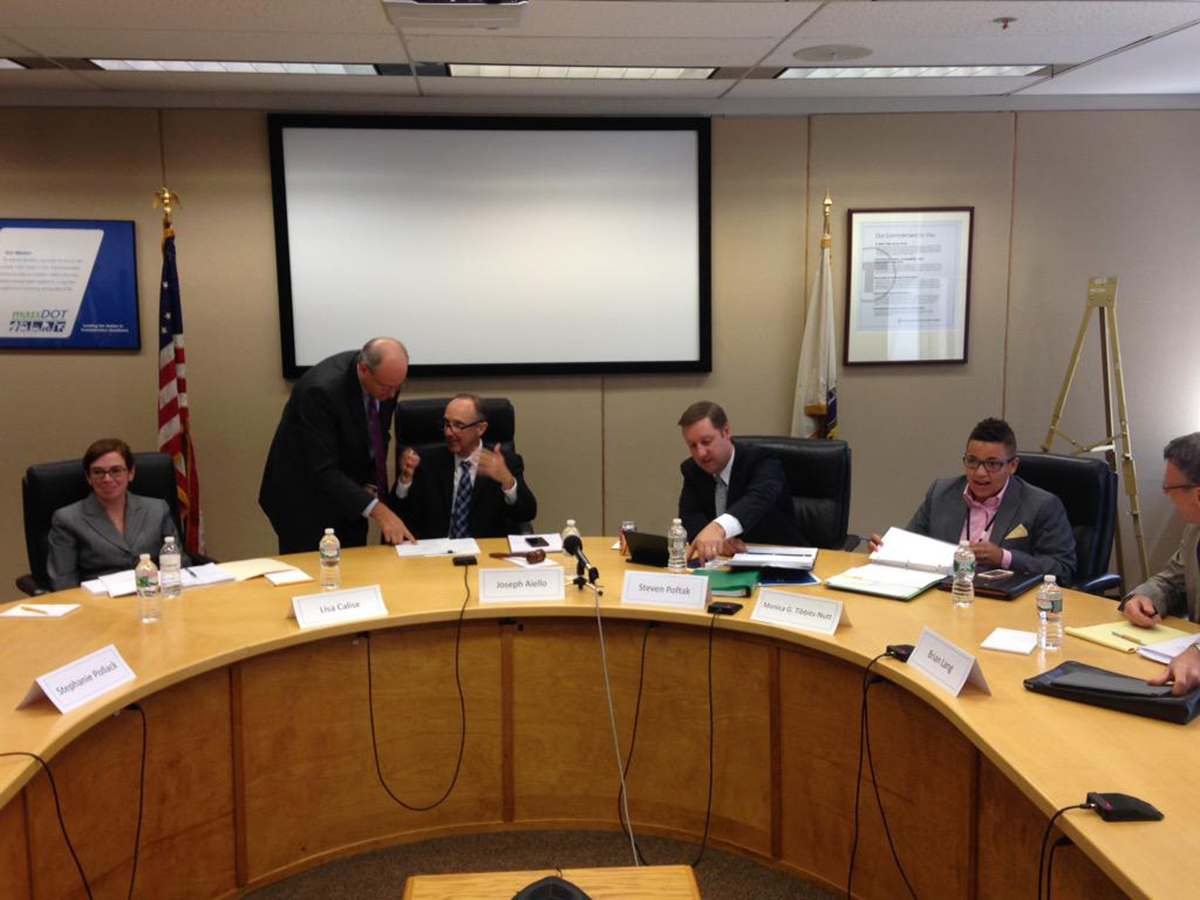MBTA Control Board Meets for First Time, Hopes to Fix Commuter Rail

The MBTA Control Board by Garrett Quinn
A newly assembled group of five individuals charged with the most difficult job in all of state government met for the first time in their official capacity inside the non-descriptive MassDOT board room on Wednesday.
Joseph Aiello, Brian Lang, Lisa Calise, Steve Poftak and Monica Tibbits-Nutt now have nearly total control over the future of the much beleaguered transit agency.
Their first meeting was not exactly riveting stuff though as it focused largely on general housekeeping and establishing the foundation for how the new board will go forward in the coming years. The group plans to meet sporadically through the summer before turning to a weekly schedule after Labor Day.
The board, one of the key products of the MBTA reform package passed on Beacon Hill, will report directly to MassDOT Secretary Stephanie Pollack. The board does include some MassDOT board members but is mostly independent of the body that once oversaw the MBTA. The new control board only needs to go to the MassDOT board in order to secure any type of bonding otherwise they are running the show now.
Each board member is expected to focus on certain things like finances, security, winter planning, real estate, capital planning and more. One board member will be tasked with just the Commuter Rail, a subject that was the focus of a huge chunk of the meeting.
The Commuter Rail, operated by Keolis, has been under even more scrutiny than the MBTA in the aftermath of its disastrous performance this past winter. The Purple Line, as it is known by some, saw its on time performance crater to never before seen levels and equipment failures were seemingly endless. The service during winter was a rolling dumpster fire on rails that did not roll.
The control board, along with the MBTA and Keolis, is trying to change all that and make sure it never happens again. On Tuesday the MBTA announced the $7.5 million in fines levied against Keolis for problems that occurred this winter will actually go to fund improvements to the Commuter Rail’s performance. Repairs and renovations to some stations as well as train HVCA systems are likely to be paid for with the fines.
DePaola stressed that Keolis needs to improve how it counts riders as the current passenger counts are considered unreliable and that there is a need for a new a class of employees on the commuter rail that focus solely on fare collection. A block of the $7.5 million in fines is expected to fund the new fare collectors. Keolis hopes that by shaking up the Commuter Rail schedule it can improve tracking assignments at Boston’s two major train stations, a move that would alleviate delay causing congestion on some busy lines.
Interim MBTA General Manager Frank DePaola told the new control board that he is “not satisfied” with the performance by Keolis in year one but reopening the contract is a costly and unlikely step to take at this point. DePaola said the MBTA is optimistic that tweaking its penalty regimen for Keolis that they will see an improvement in Commuter Rail performance. DePaola stressed at the meeting that reinvestment of the fines will benefit the Commuter Rail riders and the system on the whole, not Keolis.

